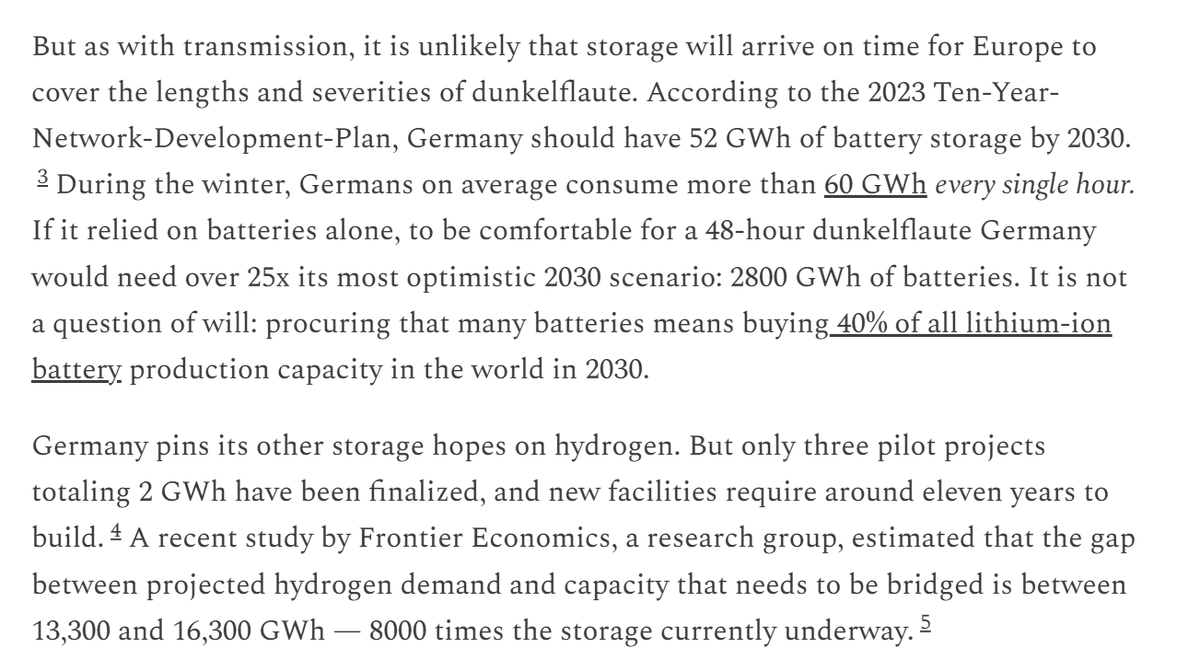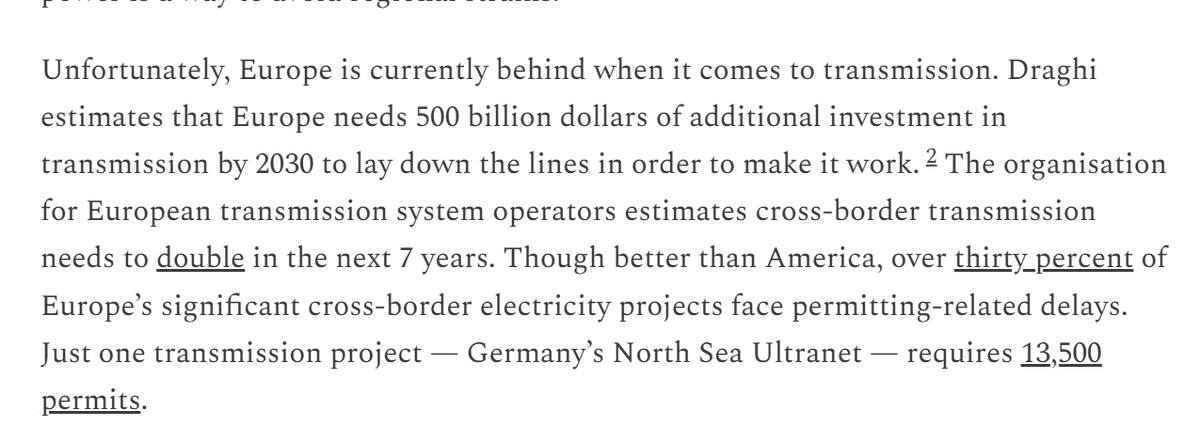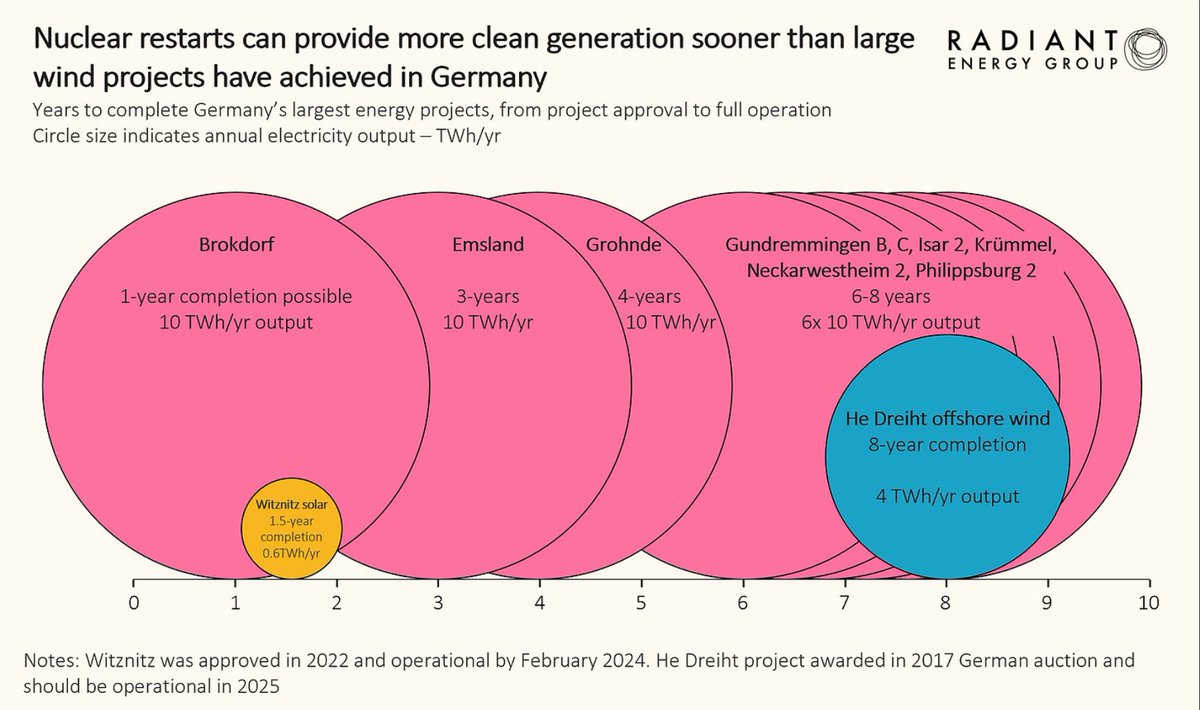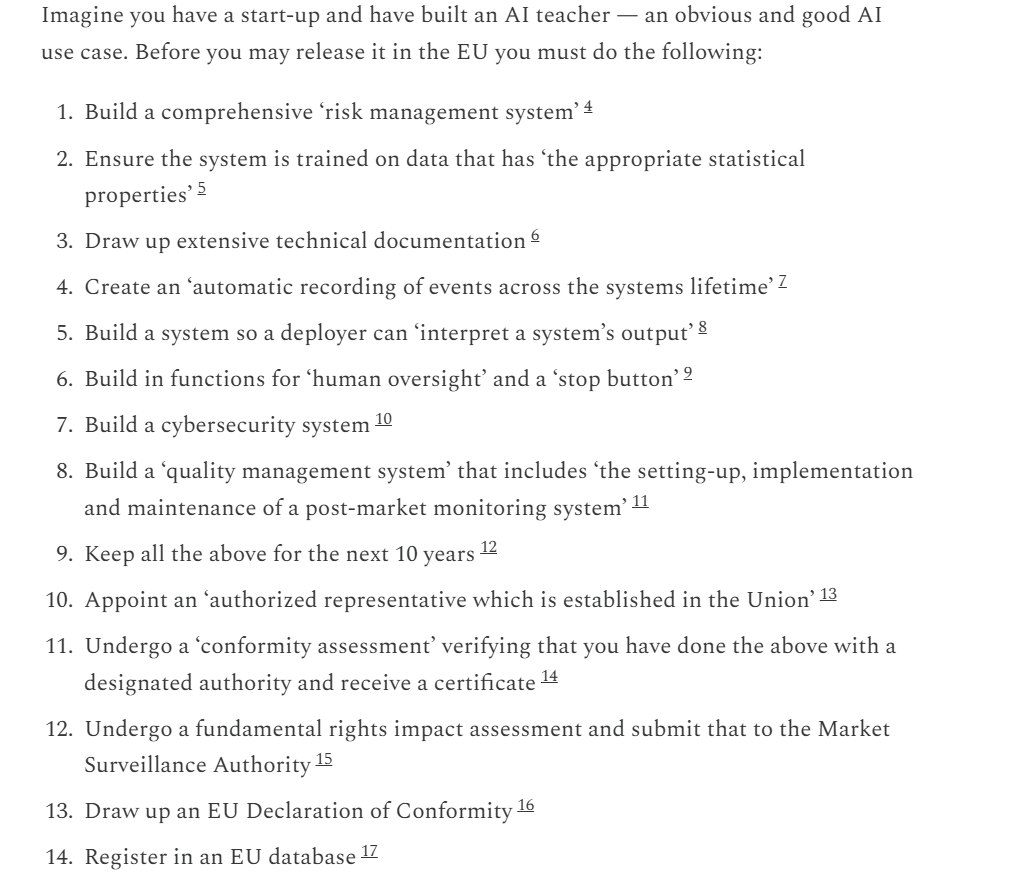1/10 Europe just got a brutal wake-up call about green energy math. When wind & sun disappeared in December, electricity prices shot up 20X. Our current plans for batteries and storage won't solve this for decades. Here's the real numbers 🧵 

2/10 Case in point: December 2023's "dunkelflaute" in Europe. No wind, no sun. Result? Electricity prices spiked 20x in Norway, hit record highs in Netherlands, and led Spain's authorities to cut power to factories 🌑
Link to the post by @pietergaricano
siliconcontinent.com/p/intermittenc…
Link to the post by @pietergaricano
siliconcontinent.com/p/intermittenc…
3/10 People confuse power (GW) with energy (GWh). A 1GW battery might sound as good as a 1GW nuclear plant. But batteries run for hours, nuclear runs forever. During a 4-day "dark doldrums," that nuclear plant makes 96GWh - while your battery is long dead.
4/10 Lithium batteries are built for 2-4 hours of storage. Perfect for day/night solar cycling. Terrible for multi-day wind/solar outages. It's like bringing a water bottle to fight a forest fire. We need different tools for different timescales.
5/10 Germany needs 2,800 GWh of batteries for 48h backup - that's 40% of ALL 2030 global battery production. Their actual 2030 plan? 52 GWh (1hr of winter power). Hydrogen? Even worse: have 2 GWh, need 16,300 GWh. The storage math simply doesn't work. 

6/10 Europe's Plan B? Grid connections! If Germany's dark, maybe Spain has sun. But cost: $500B in new transmission by 2030. One German project alone needs 13,500 permits. Meanwhile, Norway's already saying "no more" to new connections 🇪🇺 

6' (Although as @JohnHCochrane argued in an answer one has to wonder why Norway does not like exporting cheap to produce energy at high prices!)
7/10 Germany could restart 2 nuclear plants (2.7 GW) in just 3 years for €2B. Scale up to 7 plants (9.4 GW) in 8 years. That's reliable, clean power for millions - available rain or shine, day or night. Sometimes the best solution is the one we already built. 

8/10 Instead, Europe's keeping fossil fuels as backup. Germany's pushing coal phase-out from 2030 to 2038. Maintaining a second grid of gas/coal plants for backup is massively expensive - and terrible for climate goals.
9/10 Yes, solar is revolutionary - "panes of glass that print wealth." But here's a simple truth: if you're rationing power or breaking price records, your energy policy has failed.
10/10 The math is clear: without massive storage breakthrough or nuclear power, Europe faces an ugly choice - accept blackouts and price spikes, or keep burning fossil fuels as backup. Physics doesn't care about politics.
siliconcontinent.com/p/intermittenc…
siliconcontinent.com/p/intermittenc…
• • •
Missing some Tweet in this thread? You can try to
force a refresh












